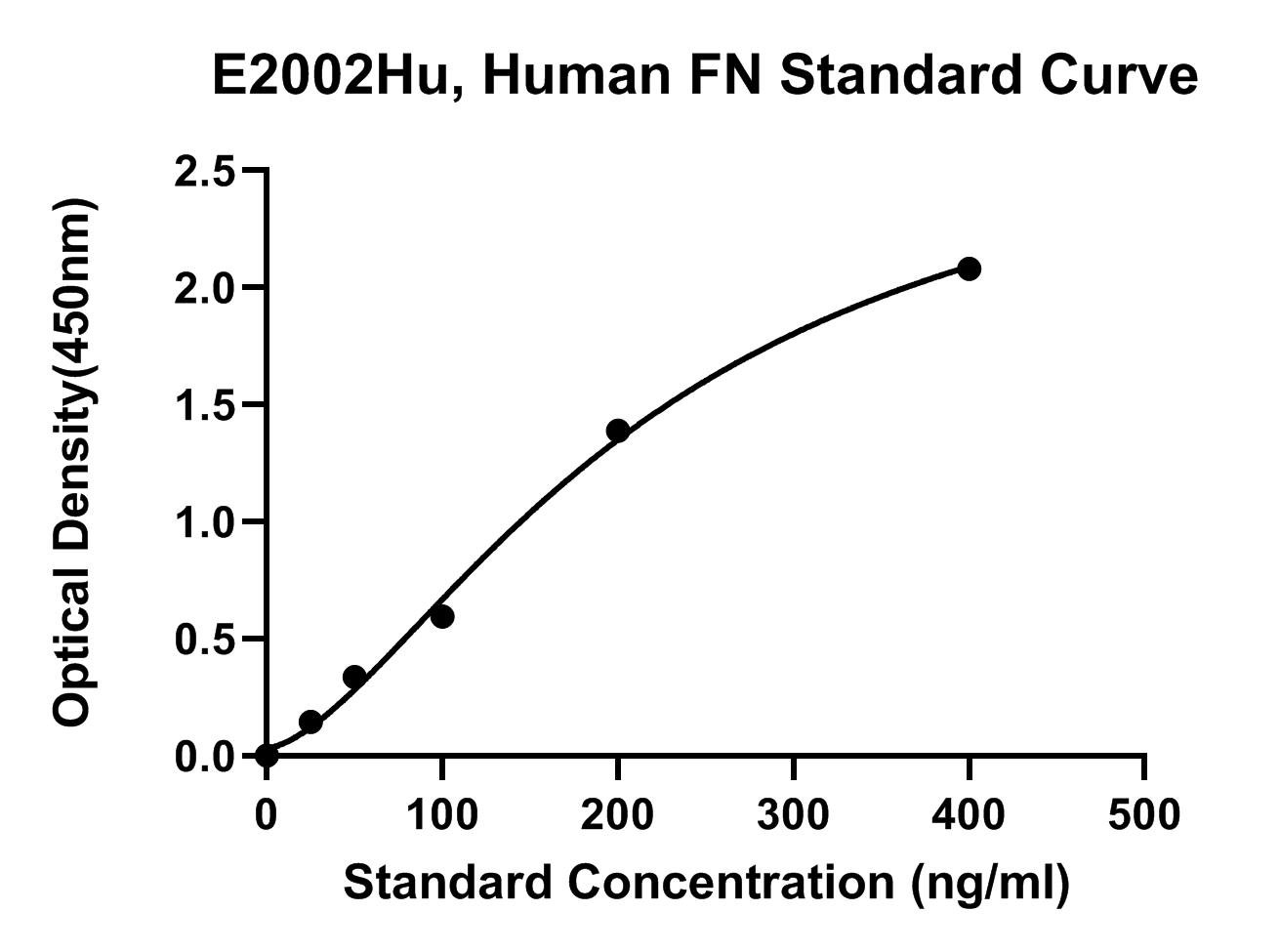E2002Hu
Human Fibronectin, FN ELISA Kit
Bioassay Technology Laboratory
DESCRIPTION
Fibronectins bind cell surfaces and various compounds including collagen, fibrin, heparin, DNA, and actin (PubMed: 3024962, PubMed: 3900070, PubMed: 3593230, PubMed: 7989369). Fibronectins are involved in cell adhesion, cell motility, opsonization, wound healing, and maintenance of cell shape (PubMed: 3024962, PubMed: 3900070, PubMed: 3593230, PubMed: 7989369). Involved in osteoblast compaction through the fibronectin fibrillogenesis cell-mediated matrix assembly process, essential for osteoblast mineralization (By similarity). Participates in the regulation of type I collagen deposition by osteoblasts (By similarity). [Anastellin]: Binds fibronectin and induces fibril formation. This fibronectin polymer, named superfibronectin, exhibits enhanced adhesive properties. Both anastellin and superfibronectin inhibit tumor growth, angiogenesis and metastasis. Anastellin activates p38 MAPK and inhibits lysophospholipid signaling.
DETAILS
- Gene Id: 2335
- Uniprot: P02751
- Lead Time: 3 days
- Assay Type: Sandwich
- Sample Type: Serum, plasma, cell culture supernates
- Sensitivity: 1.02ng/ml
- Detection Range: 2-600ng/ml
- Detection Method: ELISA
- Species Reactivity: Human
